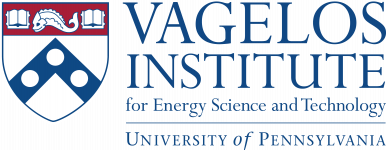This highly competitive fellowship is awarded to outstanding future leaders in energy science, with an emphasis on working collaboratively across labs. Fellows must be co-sponsored by at least two faculty members of the Institute.
The application for the 2025 fellowship will be available in summer 2024 with an anticipated appliation deadline in October, 2024. Applicants are encouraged to contact at least one faculty member well in advance of the application deadline to advise on proposal and collaboration development.
2023 Postdoctoral Fellows
 |
Kunyu Wang Kunyu Wang received his B.S. in Chemistry at Nankai University in 2018 and his Ph.D. in Chemistry at Texas A&M University in 2023 under the supervision of Prof. Hong-Cai Zhou. His postdoctoral work with Prof. Christopher Murray and Prof. Shu Yang focuses on developing hierarchically porous materials for carbon capture and water harvesting. |
 |
Randall Wilharm Randall Wilharm received his B.S. in Chemistry from Michigan Technological University, where he worked with Prof. Bruce Lee and Prof. Rudy Luck. He received his Ph.D. in Chemistry in 2023 from the University of Minnesota with Prof. Valérie Pierre. His postdoctoral research at Penn with Prof. Eric Schelter and Prof. Dirk Trauner is focused on targeted rare earth element separation using photoswitch-appended extractants. |
2022 Postdoctoral Fellows
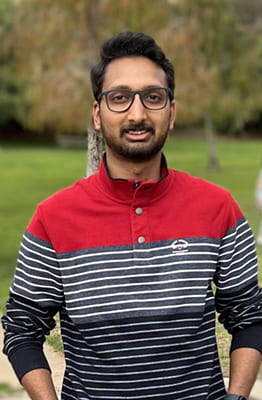 |
Santanu Malakar Santanu Malakar received his B.Sc. and M.Sc. in Chemistry from the Indian Institute of Technology Bombay in Mumbai, where he worked with Prof. Raghavan Sunoj. He received his Ph.D. in Chemistry in 2022 from Rutgers University with Prof. Alan Goldman. His postdoctoral research with Profs. Karen Goldberg and Marisa Kozlowski is focused on catalytic dehydrogenation and carboxylation of waste polymers. |
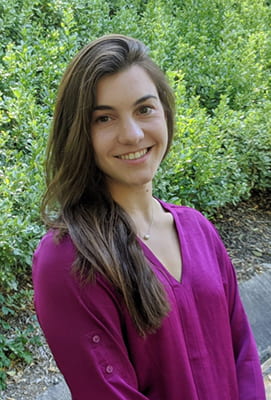 |
Leanna Schulte Leanna Schulte received her B.A. (major with honors in Chemistry, minor in Mathematics) from Washington University in St. Louis, where she did research with Prof. Julio D’Arcy. She received her Ph.D. in Physical Materials Chemistry in 2021 from the University of California, Irvine under the mentorship of Prof. Shane Ardo. Her postdoctoral work with Profs. Tom Mallouk and Zahra Fakhraai is focused on new materials for high-temperature energy conversion devices such as alkaline electrolyzers and fuel cells. |
2021 Postdoctoral Fellows
 |
Clàudia Climent Clàudia Climent received her BSc in Chemistry from the Universitat de Barcelona, a BSc in Physics from the Universidad Autónoma de Madrid, and her PhD in Nanoscience from the Universitat de Barcelona with advisors Dr. David Casanova and Prof. Pere Alemany. She has also done postdoctoral research at the Department of Theoretical Condensed Matter Physics at Universidad Autónoma de Madrid in the group of Dr. Jonannes Feist. Her research at Penn with Profs. Joseph Subotnik and Abraham Nitzan is focused on polaritons for catalysis, photocatalysis, and energy transfer. |
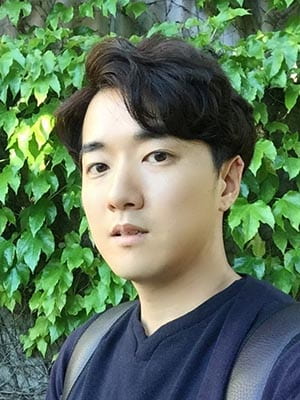 |
Siwon Lee Siwon Lee received his B.S. in Ceramic Engineering from Yonsei University and his Ph.D. in Materials Science and Engineering from the Korea Advanced Institute of Science and Technology (KAIST) under the supervision of Prof. WooChul Jung. His postdoctoral research with Profs. Daeyeon Lee and Raymond Gorte had a goal of developing hydrogenolysis catalysts for chemical upcycling of polymers. Dr. Lee is Assistant Professor of Materials Science and Engineering at Hanbat National University. |
2020 Postdoctoral Fellows
 |
Yue Gao Yue Gao received his B.S. in Chemistry from Lanzhou University where he performed research with Prof. Hongbin Zhai, and his Ph.D from The Pennsylvania State University under the joint mentorship of Prof. Donghai Wang (Mechanical Engineering) and Prof. Thomas Mallouk (Chemistry). His postdoctoral research with Profs. James Pikul and Karen Winey focused on the design of 3D-printed polymer-hosted lithium metal anodes with an ultimate goal of designing stable lithium metal batteries with fast-charge and high-power capabilities. Dr. Gao is now a Tenure-Track Professor in the Department of Macromolecular Science, Fudan University. |
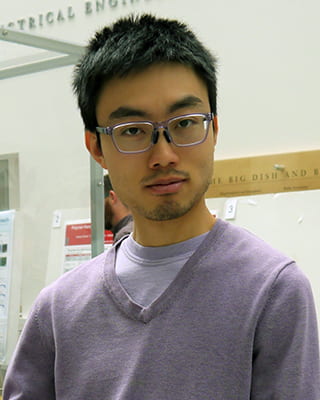 |
Holden Lai Holden Lai received a B.A. in Chemistry with High Honors and Physics, and a B.Mus in Percussion Performance from Oberlin College & Conservatory. He received his Ph.D. in Chemistry from Stanford University with Prof. Yan Xia and was an NSF Graduate Research Fellow. His postdoctoral research with Profs. Chinedum Osuji and Karen Winey focused on developing novel materials for nanofiltration and ion transport membranes while investigating fundamental problems in membrane science. Dr. Lai is now Chief Technology Officer of Osmoses. |
2019 Postdoctoral Fellows

Alex Confer received a B.S. in Chemistry & Biochemistry and a B.A. in Mathematics Maxima cum laude from LaSalle University, where he performed research with Michael Prushan. He received his Ph.D. in Chemistry from The Johns Hopkins University in 2019, where he worked with David P. Goldberg. His postdoctoral work with Neil Tomson and Eric Schelter focused on using metal clusters supported by flexible, redox-active ligands for low-energy activation of N2 and CO2. He is currently a Senior Scientist at Merck.
Nathanael Hirscher received his B.Sc in Chemistry with High Distinction from the University of Virginia, where he worked with Brent Gunnoe. He received his Ph.D. in Chemistry in 2019 from the California Institute of Technology under the mentorship of Theodor Agapie. His postdoctoral research is focused on tandem catalytic methods for oxidation of methane to methanol, working with Karen Goldberg and Eric Schelter.
Ahmad Shamsabadi received his B.S. in Chemical Engineering from the Iran University of Science and Technology with advisor Nezamoddin Ashrafizadeh, and a M.S. in Gas Processing and Transmission Engineering from the Petroleum University of Technology in Ahwaz Iran, where he worked with Masoud Bahrami and Ali Kargari. In 2019 he received his Ph.D. in Chemical Engineering from Drexel University, where he worked with Masoud Soroush. His postdoctoral work with Zahra Fakhraai and Raymond Gorte focused on the microporosity of polymers and their relationship to the performance and stability of catalysts for fuel cell applications. He is now a Senior Scientist with Pall Corporation.
